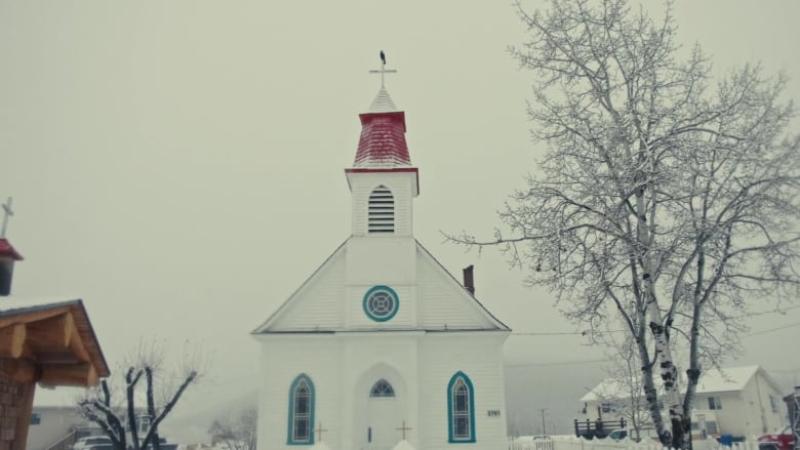Sugarcane documentary explores residential school intergenerational trauma and resilience


A documentary that opens in a number of theatres in Canada on Friday follows the filmmaker and his father as they learn the gruesome history of St. Joseph's, a residential school near Williams Lake, B.C., — and his father's birthplace.
Sugarcane is the debut feature documentary by Julian Brave NoiseCat and co-director Emily Kassie. Later this month, the film will be in a rez tour starting in Squamish Lil'wat Cultural Centre.
Operated by the Missionary Oblates of Mary Immaculate from 1886 to 1981, St. Joseph's Mission was just outside the Williams Lake First Nation community core of T'exelc, also known as "Sugar Cane."
The film explores the First Nation's ongoing investigation into the school , which has heard accounts of disappearances, murders, systematic torture, rape and starvation of children, and newborn babies fathered by priests tossed into the school's incinerator.
"I had heard that [my father was] born at Williams Lake and found in a dumpster," NoiseCat said.
"I did not know that any of this was at the school and I did not know that it was the incinerator actually, at St. Joseph's mission."
NoiseCat said he'd heard stories of infanticide growing up when he'd visit his community, Canim Lake Band Tsq'secen of the Secwepemc Nation.
"When I was young I just chalked this up to like some sort of rez legend, you know. I thought this was just a ghost story that people retold," he said.
"I had no clue that not only was it true, but it was also part of my own family, part of my own origin story."
He said his decision to not only document, but to be a participant in the film was not an easy one.
"I was really, as you might imagine, very hesitant because of the weight of my family's story. I didn't know what that story was when I began, but I knew that there was a story there," he said.
In the film he is tasked with the responsibility of telling this story in ceremony by his aunt, whose grandfather was a survivor of the school. That's in contrast, he said, with how families actually survived the trauma — by keeping silent.
"I think we're a long way from any meaningful reconciliation with the church and the government," he said.
"I think it is really important that we reconcile with ourselves and with our families."
The filmmakers said discourse about Indian residential schools has waned over the past three years since the first announcements of unmarked burials found at residential school sites.
"Canada is actually ahead of the curve on this conversation and at the same time, people seem very eager to get to the reconciliation part of the conversation and our documentary insists that we're not done with the truth," said Kassie.
She said she felt "gut-pulled towards this story" when the news broke in Kamloops, in 2021.
"We want this film to be part of this essential reckoning that's happening in Canada right now, as well as the one that's beginning in the U.S. where the system was three times as big," she said.
Sugarcane premiered earlier this year at the Sundance Film Festival where it received the jury prize in directing in the U.S. documentary category.
Tags
Who is online
42 visitors

This is why history is revised.
Yes. There's some history that some groups would like to see forgotten.
We are just starting to scratch the surface of the Boarding Schools in the US and it is already very ugly. We will see if Congress will fund more ongoing research.
The whole Residential School issue is proof that human beings are capable of being monsters - some still are. And with a record behind them of The Inquisition, and The Holocaust, why would ANYONE be surprised?